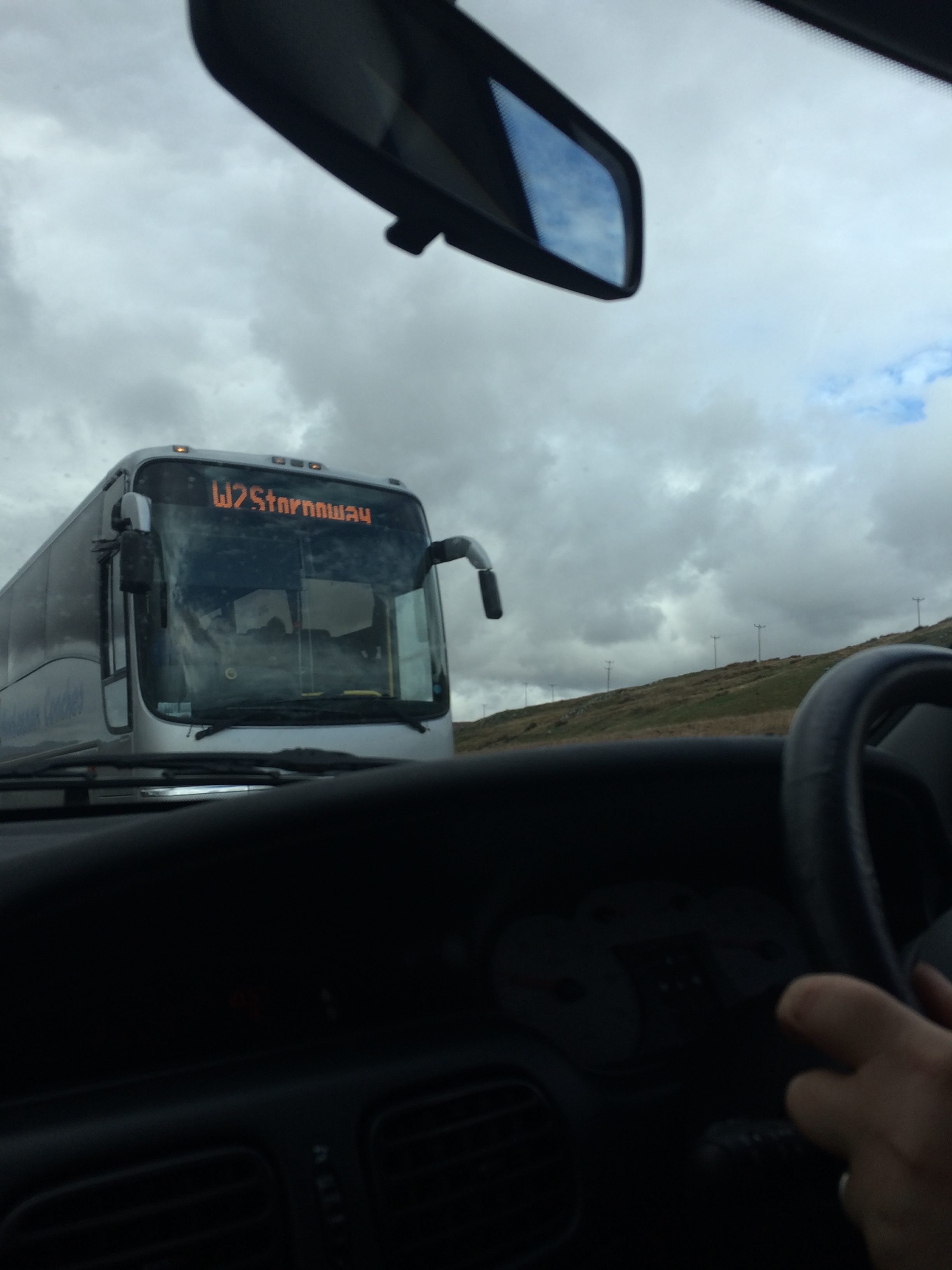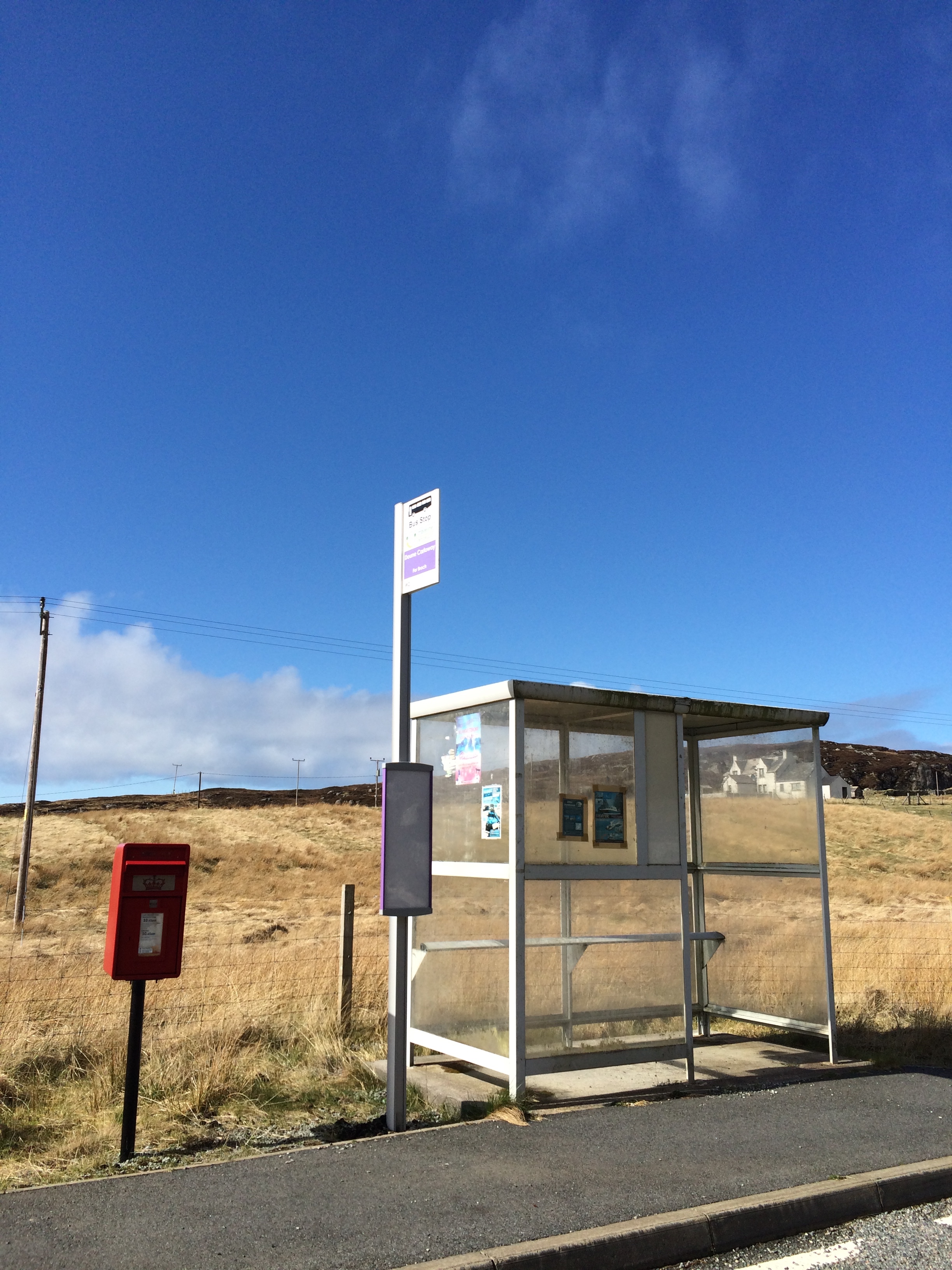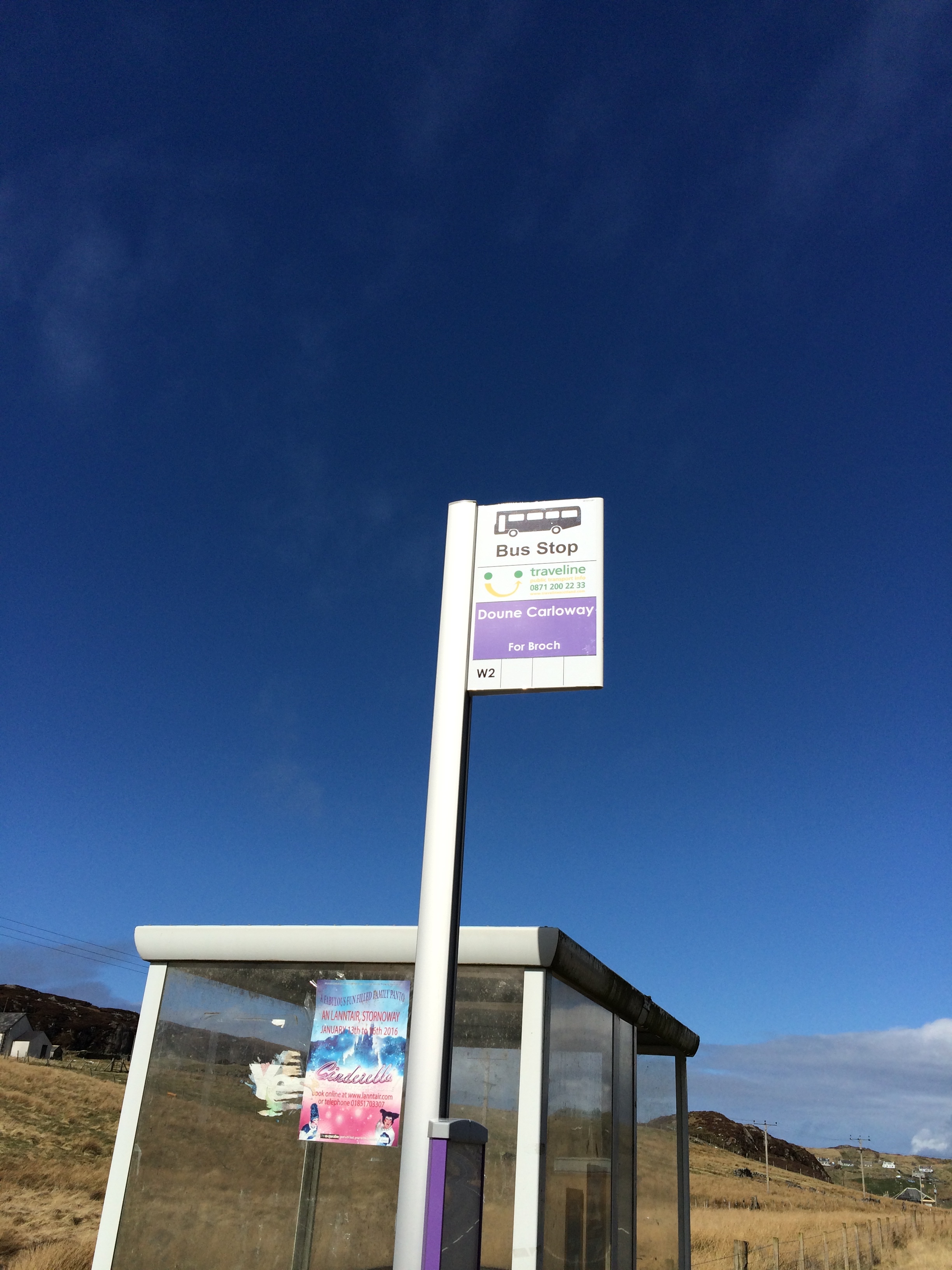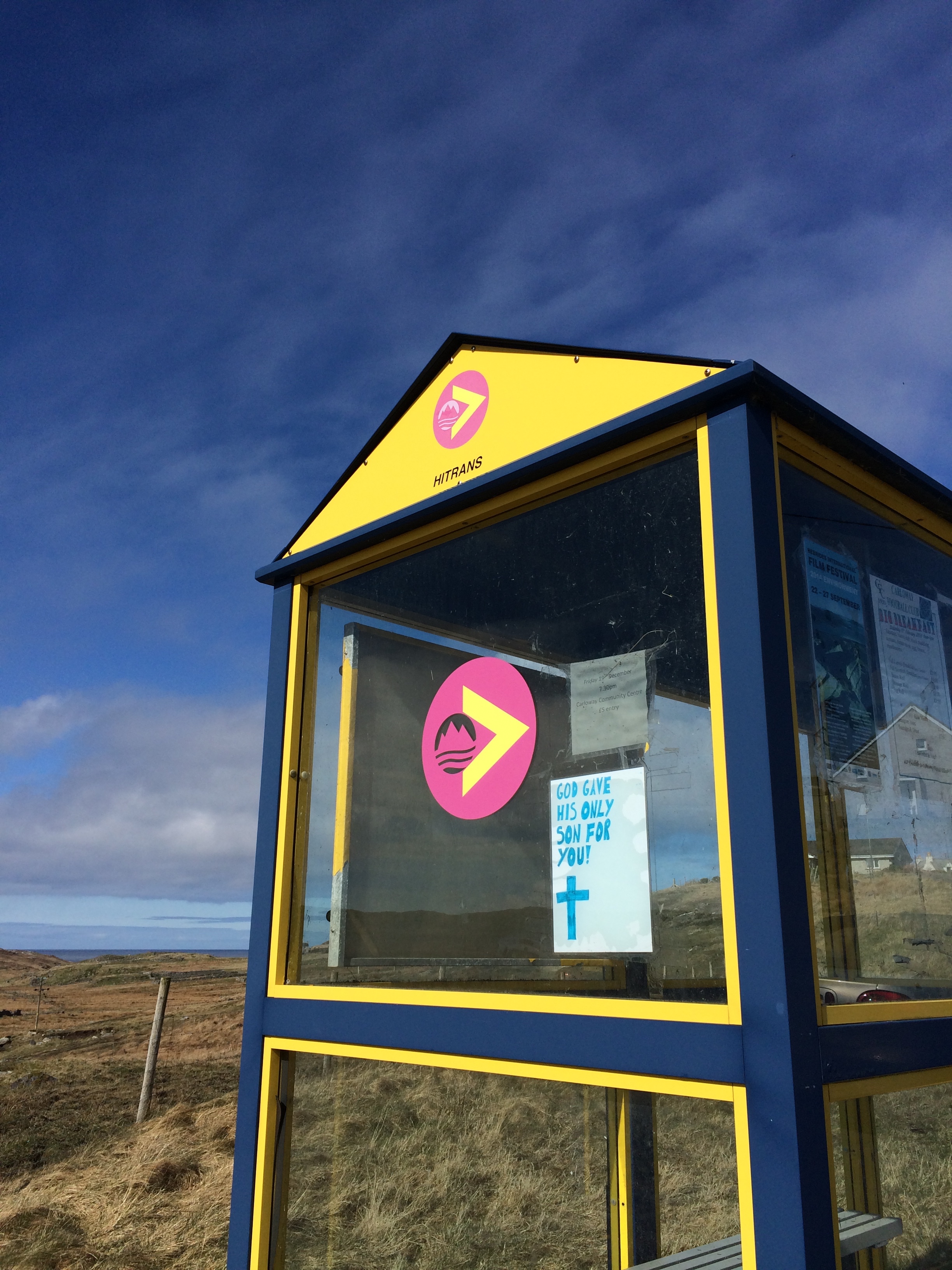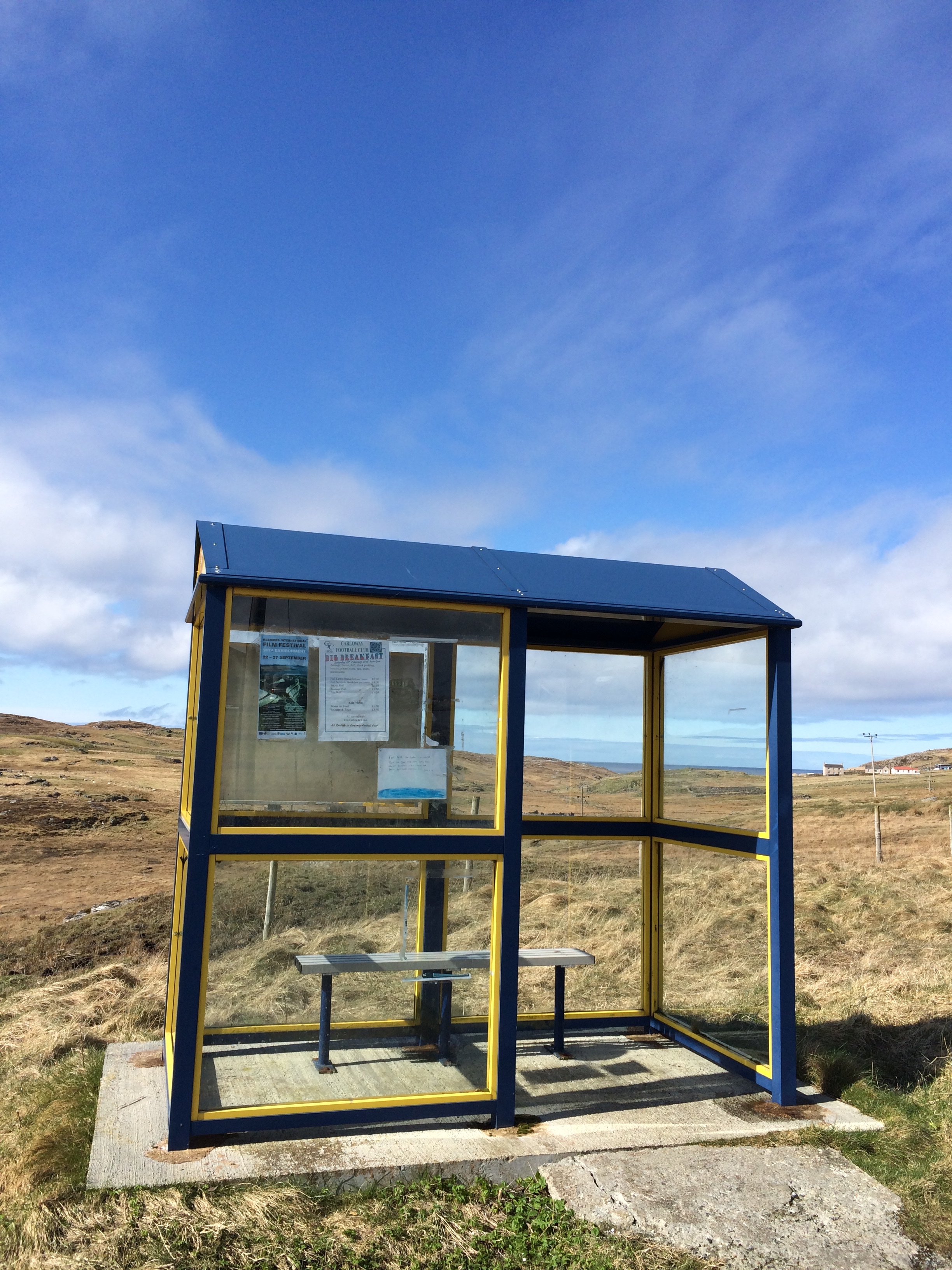North by North West
/It's a bus shelter. No, seriously, it is.
It's called a Four Winds shelter and when you see it standing in a wind-swept spot, in the middle of the Isle of Lewis, you begin to see why. No matter what direction the wind blows from (and it can really blow) you'll find a sheltered spot somewhere in there.
Paula, who was taking me on this tour of the Island's more remote transport links, leads the Life Changes Trust Dementia Friendly Communities project at Stornoway's arts hub An Lanntair. Among many other things, they are using creative approaches and '...co-designing techniques for engaging with people living with dementia, their carers and the wider community'. One of the related projects involves primary school children mapping and exploring their routes to school. Some visiting artists had recently travelled the island's bus routes and they are currently developing art installations for these very bus shelters...
We had already visited Staran, a community interest company that provides all kinds of services locally including gardening and transport. They have an impressive fleet of minibuses and adapted vehicles. One of the volunteer drivers Ken was just off to the local care home, so he offered me a lift and we chatted about how Staran transport was increasingly being used to take older and disabled people to medical appointments as well as errands around town and social outings too.
At Blar Buidhe care home, just on the outskirts of town, Ken met his passengers and Paula introduced me to Peter the care home manager. Peter has a wealth of experience in keeping the residents active and connected with Island life. We talked about mobility in older age and the challenges of simply getting in and out of vehicles. We heard that the home's minibus is a lifeline and in constant use - and yet, some aspects of adapted vehicles could be better. Those yellow strips showing the edges of steps might be a perceptual problem for some people with dementia. Perhaps a solid block of yellow might be better? Could minibus adaptation include design, creating a better environment to travel in? We weren't sure...
I had a go on the wheelchair lift into the back of a bus ... those yellow stripes again.
The Alzheimer Scotland resource centre in town was the next stop - this is where a group gathers regularly to share information, have a cup of tea and generally tap into local support. We had some lovely conversations and noticed a taxi or two pulling up outside. We briefly chatted with one of the drivers - yes, they regularly drop off here but no, not aware of guidance on the needs of people travelling with dementia. We need to point them to the SDWG film...
And now we were heading north and west of Stornoway, stopping at bus stops and taking pictures...
Some of them are pretty remote and we were wondering - why no timetables? Not even a bus number in some cases. Somebody else had been wondering too...
Back at Lanntair we chatted these things through with David Smart, the local council's Transport Manager. Clearly it's a challenge, keeping information updated across a large, remote region. We learned that local minibuses provide short, circular services from remote locations, connecting people with more major island bus routes. Some of these are demand-responsive - you call and book them, so there is no timetable.
David told us about the HI Trans Thistle Assistance card and the Ferry User-Group meetings. We talked about concessionary travel and wondered if a diagnosis of dementia leads to a travel concessionary card? The answer, it seems, is 'it's complicated'. Alzheimer Scotland has useful advice on driving and dementia which has guidance on free bus travel 'If you are 60 or over you will definitely qualify. If you are under 60, you might qualify – some local authorities include people with dementia and some don’t'.
There are clearly many aspects of Island travelling with dementia to explore. Many people and organisations play a role and we need to find ways of including them in our conversations. There's also a vast amount of local knowledge for us to tap into and maybe a different, more personal side to travelling that we might not find in other areas - drivers and passengers often know each other.
So, head buzzing with thoughts and ideas we headed back to the airport and one last bus-stop.
Thanks to Paula for a day of though-provoking conversations and sights - it has got us thinking about the similarities and differences we might find as we explore travelling with dementia in different areas.





